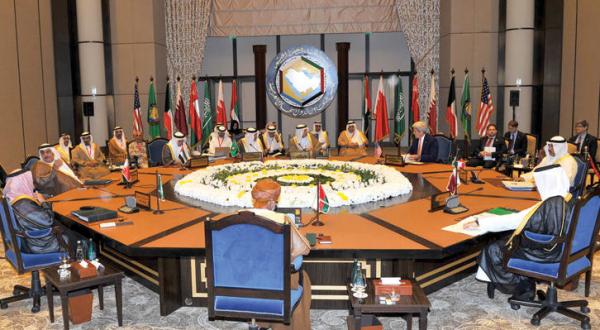Manama-U.S. Secretary of State John Kerry met with Gulf state ministers on Thursday in Manama where the parties discussed latest developments and challenges in the region.
Saudi Foreign Minister, Adel al-Jubeir said that the meeting tackled US assurances on responding to any external aggression, means of ending Iran’s interventions in the region and the challenges in the Middle East whether in Lebanon, Syria, Libya, Iraq or Yemen.
Jubeir added that all parties discussed the peace process and the Palestinian cause in addition to the joint efforts to end terrorism and extremism.
Speaking during a joint news conference with his US counterpart John Kerry in Manama, Adel al-Jubeir said that GCC ministers reaffirmed their support for Morocco’s stance regarding the Moroccan Western Sahara’s and its suggestion for autonomy for the region and its rejection to any unilateral measures that could destabilize the region.
Al-Jubeir pointed out that the GCC condemned Iranian attempts to smuggle weapons to the Yemeni Houthi rebels by the time other countries are putting efforts to restore peace and stability in Yemen.
“At a time when we try to advance the political process in Yemen, Iran attempted smuggle weapons and explosives to Yemen and the GCC member states,” he said.
He also said the Kingdom reiterated that Iran needs to abide by the principle of non-interference in the domestic affairs of GCC states if it wanted to normalize its relationship with his country.
For his part, U.S. Secretary of State John Kerry said that discussions were a reflection of common interest between USA and GCC States.
Kerry added that USA had been extremely active with the GCC in their consultations over the past couple of years, and the Camp David meetings were a very significant starting point for this broadened relationship. The meeting discussed the summit of the six-nation Gulf Cooperation Council (GCC) in Riyadh, which will be attended two weeks later by President Barack Obama. Kerry said he and the foreign ministers of Arab states in the Persian Gulf were in the early stages of assessing whether a partnership between NATO and the six GCC nations would contribute to regional security.
“The meeting also discussed transformation taking place not just in the region but globally with the price of oil and other challenges economically to have a major new component of this dialogue, which is economic transformation,” Kerry said.
The U.S. Secretary of State also said that President Obama believes very much, as he does, that in this critical period a very close and constructive communication between USA and GCC states is more than essential.
“It is critical for everyone’s ability to meet the security and economic challenges of the region, and that’s why President Obama is very much looking forward to the GCC summit to underscore America’s commitment to our Gulf friends and also to supporting greater peace and stability throughout the region, which has seen its challenges over the course of the last few years,” he said.
Kerry said that the U.S. Fifth Fleet, which is based in Bahrain, last week interrupted a shipment of weapons destined for Houthi rebels in Yemen.
“We call on Iran to constructively join in the efforts to make peace and to help us to resolve Syria and rather than to continue to send weapons to Houthis, join in the effort… to make peace and to work toward a cessation of hostilities,” Kerry told reporters.
Moreover, Kerry confirmed that his country and Gulf States are prepared to work a new arrangement to find a peaceful solution to Iran’s missile program.
He said that they are looking for Iran to make it clear to everybody that they are prepared to cease these kinds of activities that raise questions about credibility and questions about intention.
Referring to Bahrain, Kerry criticized the Bahraini opposition, saying its boycott of a 2014 election had a “polarizing” effect.
Kerry, appearing with Bahraini Foreign Minister Sheik Khalid bin Ahmed al-Khalifa, praised reforms Bahrain has made to open its political system but said more steps were needed to counter violent extremism. He suggested that the opposition had played a role in preventing more reforms.
“Regrettably, I think a great mistake was made when the opposition chose to boycott an election,” said Kerry. “I think that polarizes things rather than helps them.”
